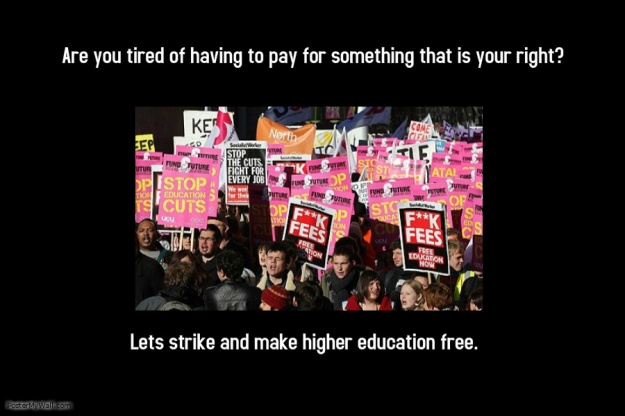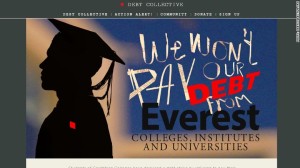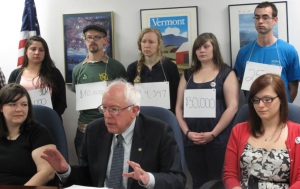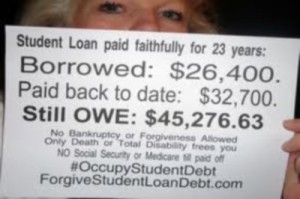I originally came into this research relatively ignorant to the things that student debtors go through as they struggle pay their way out of their loan debt. As you grow up it is already put into your head that you’ll have to take out loans in order to afford college and pay it back afterwards even if you might have to struggle. Since before we even start college we have already accepted this monumental and unfair action as the norm for attending college. It is hard to imagine any other way beside the only way we have known.
Because of this when I stumbled upon Hillary Clinton’s New College Compact plan that minimizes the amount of loans you have to take out, and even lets you refinance your current debt situation, I found it to be the perfect solution to our current problem.
Until I continued reading the stories of debtors that let me see how the things others say, such as you could afford to pay for tuition or your debts if you work alongside school, really doesn’t work for everyone. And even then if you can sometimes it doesn’t even help make a dent in your debt. Along with requiring the help of family even if it may be a small amount, it really doesn’t work when you’re on the middle line of poverty and have other things to pay for besides your child’s tuition.
In this case you realize Hillary’s Plan really cannot work for everyone, especially for those with a low economic status. It is a plan that effectively ensures the paralyzing of low income families economic status, even if that isn’t her intent.
After more in depth research I realized that everyone would benefit by having higher education be completely free. One, it would benefit our society if it were filled with academically enriched citizens. Two, it would increase the economy because we would have successful working citizens.
Even after coming to that realization, I did not think it a possibility. It is hard to imagine something like that ever happening because we are so used to correlating college with the word debt. But, it is exactly this sort of mentality that inhibits the progress of our debt problem. If we do not looks past that sort of mentality then we will never achieve fixing our debt.
My thinking has made a complete turn and my biggest realization has been that through mass we are powerful and we can change the way  things have been for a long time we just have to realize first the power that we hold.
things have been for a long time we just have to realize first the power that we hold.
Image was borrowed from: http://static01.nyt.com/images/2013/06/18/world/americas/18brazil-pic-for-mobile/20130618_BRAZIL_EMBED-slide-DOAD-articleLarge.jpg












